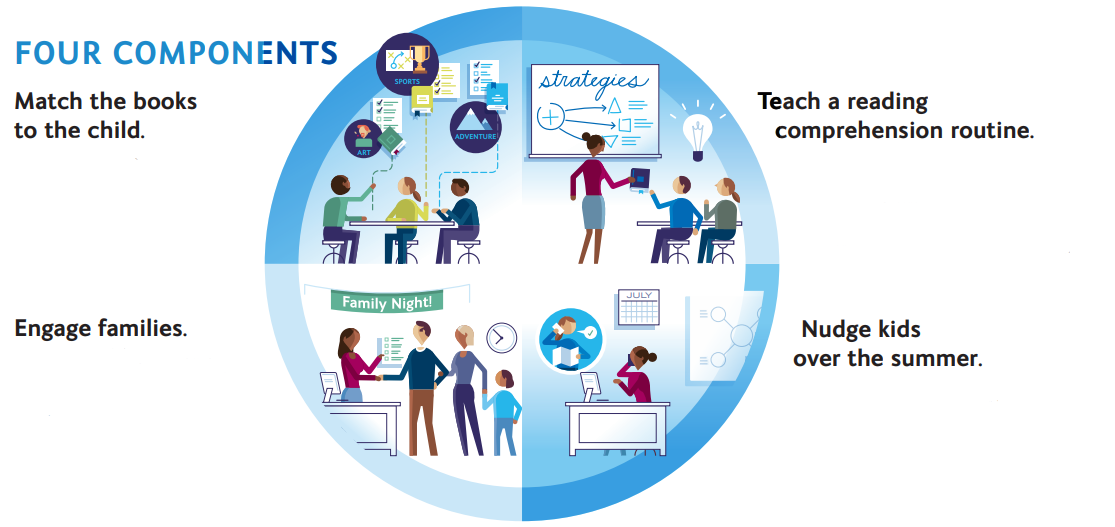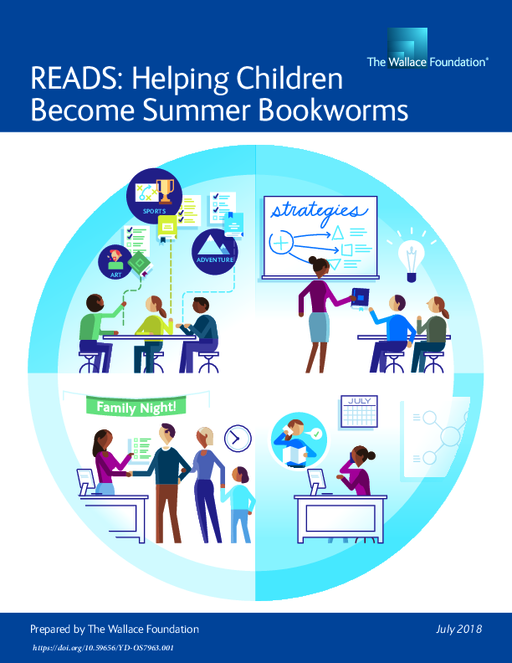Breadcrumb
- Wallace
- Reports
- Helping Children Become Summer B...
Helping Children Become Summer Bookworms

- Author(s)
- Jennifer Gill
- Publisher(s)
- The Wallace Foundation
Summary
How we did this
Over a decade of research, Harvard University education professor James Kim developed and fine-tuned the components of the READS for Summer Learning program.
A structured, home-based summer reading program can narrow the achievement gap between economically disadvantaged children and their more affluent peers.
That’s the key message of this report. It explores the READS for Summer Learning program and the rigorous research behind its development over the years, as well as its outcomes and key components.
A Structured Program
The brainchild of James Kim, a Harvard University education professor, READS provides 10 free books to third through fifth graders over the summer. Books are matched to each student’s interest and reading level.
But that’s only one part of the strategy. In addition, a structured program encourages children to read and think about what they’re reading. That includes several components:
- A reading comprehension routine taught to the students at school before their summer vacation begins. These comprehension strategies help students learn how to read effectively on their own.
- The engagement of the students’ families in the program through such activities as a literacy event, where parents learn how to encourage their child’s participation over the summer
- Keep-up-the-reading nudges from teachers to parents through texts or emails during the summer
A Decade of Refinement
Over about a decade, Kim developed READS and refined its design based on what he and colleagues learned from a series of randomized controlled trials. The largest of these studies involved more than 6,000 second and third graders in 59 moderate- and high-poverty schools.
It found that READS participants made average gains equivalent to nearly one month of reading skills. For students in the highest poverty schools, the average gains were nearly 1.5 months.
The RAND Corp. reviewed research about summer learning programs and their effectiveness. One aim was to find those that met specifications for evidence rigor under the federal Every Student Succeeds Act. RAND found 43 programs that met these specifications. READS was among them and one of the few that ranked in the highest level of evidence rigor.
Project READS received support from The Wallace Foundation.
Key Takeaways
- READS helped children from high-poverty schools make reading gains by encouraging family engagement, teaching students a reading routine, and providing gentle reminders throughout the summer.
- The program was shown in a study to help children from high-poverty schools make average reading gains of nearly 1.5 months.
- Researchers refined the program through randomized controlled trials conducted over multiple years.
Visualizations

Materials and Downloads
What We Don't Know
- Could this model be adapted to take place during the school year?
- Could the program be introduced to older students?

